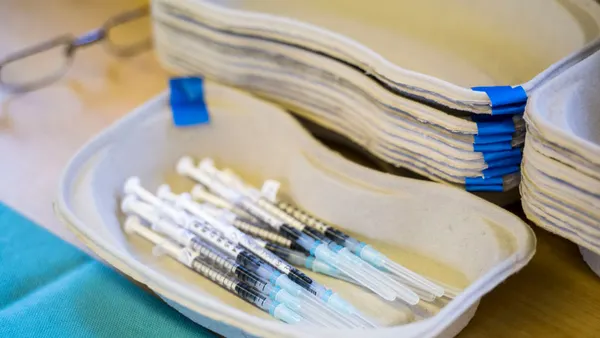Struggling gene therapy developer Bluebird bio is again cutting costs, announcing Tuesday a plan to lay off about a quarter of its workforce to reduce spending.
In a statement, Bluebird said it turned to layoffs as part of a broader plan to break even financially on a quarterly basis in the second half of next year. That plan includes lowering its operating expenses by 20%, but also involves securing additional funding and scaling to the point of making 40 drug product deliveries per quarter, the company said.
The job cuts and spending reductions are coming across “the entire organization,” with the greatest impacts on research and development as well as general and administrative functions, said Chief Financial Officer O. James Sterling, on a conference call with analysts. Initial cost reductions are already underway, he added.
The company had 375 full-time employees as of the end of June, according to a regulatory filing earlier this month.
The expense cuts are designed “to optimize our cost structure and position the company to attract the additional capital required to unlock the significant commercial opportunity before us,” said CEO Andrew Obenshain, in the statement.
On the call, Sterling indicated Bluebird is looking at range of potential funding options, including debt and equity raises, to extend its current runway. The company currently has enough cash to operate through the second quarter of next year.
Bluebird has for years been a leading developer of gene therapies and a key figure in the technology’s renaissance over the last decade. It’s brought to market three gene therapies: Zynteglo for beta thalassemia, Lyfgenia for sickle cell disease and Skysona for cerebral adrenoleukodystrophy.
But a variety of clinical and commercial setbacks have caused its share price to erode and left the company strapped for cash. It wound down its business in Europe after trouble receiving reimbursement for its therapies, and trial delays allowed a sickle cell gene therapy from Vertex Pharmaceuticals and CRISPR Therapeutics to catch up. The company warned of insolvency in 2022 and laid off 30% of its workforce. Earlier this year, it also renegotiated a debt deal with Hercules Capital to push back stipulations tied to Lyfgenia’s patient starts and gross profit.
The newly announced restructuring is in intended to sharpen Bluebird’s focus on growing sales. The company has reported 41 patient starts across its portfolio since the start of the year, but indicated in a presentation Tuesday that uptake is accelerating, with about 40 people expected to begin the treatment process in the fourth quarter.
About 20 of those are receiving Lyfgenia, which the company expects to receive the largest demand of the three going forward, Sterling said.
“We stand here today with the potential for cash flow break even in our sights, and a sustainable gene therapy business on the horizon,” Obenshain added.
Bluebird shares have lost about two thirds of their value this year, and traded at less than $1 apiece on Tuesday.













